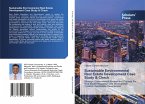In Moroccan doctrine, there has always been a question of studying the relationship between civil law and tax law. This relationship, marked by an imbalance favouring the economic aspect to the detriment of legal security, has been the subject of much criticism. The amalgam that marks this relationship, conflicting according to some and complementary according to others, is due to the complexity of the two subjects in question. Indeed, we believe that the law is a chain of complex and disparate rules whose principles complement each other without being perfect. It is this economic side of tax rules that promotes economic and social security in the first place; and causes a conflict of laws. Thus, the classical rules of law may be overridden or not respected for the sole purpose of money. However, the legislator, in order to combine rules of a fiscal and legal nature, has been able to do this, at the level of tax law, by harmonising its own fiscal aspects with legal rules taken from common law.
Bitte wählen Sie Ihr Anliegen aus.
Rechnungen
Retourenschein anfordern
Bestellstatus
Storno








